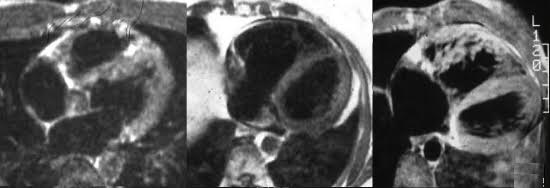Musculoskeletal MRI

Musculoskeletal MRI is used in the extremities for a variety of conditions depending on the underlying problem. It is often used as a problem solving tool to evaluate the supporting structures of a joint, as well as its internal structures. Some of these structures are seen in better detail on MRI compared to other imaging modalities.
Chest & Neck MRI
MRI of the neck or chest can be performed to assess for:
- Masses, including masses originating from the thyroid or thymus glands and lymph nodes.
- Blood vessel problems such as aneurysms, when a vessel is too large, or dissections, which are a tear in the lining of a vessel. Both of these problems can lead to rupture of the vessel and/or lack of blood supply from the vessel.
Cardiac MRI
MRI of the heart may be performed for further evaluation of signs or symptoms that may suggest:

Abdominal MRI Scan
Some types of MR studies available to patients include:

Abdominal MRA (MR angiography)
Abdominal MRA can be used to evaluate vessels for areas of narrowing (stenosis) or dilitation (aneurysm). Sometimes MRA is used for preoperative planning for abdominal masses.
What To Expect During Your MRI Scan
Below you will find information on what you will experience during your MRI scan
Preparing For Your MRI Scan
Below you will find information that will help you prepare for your exam:
- When to Arrive: Patients should arrive 30 minutes before their scheduled appointment. This allows time to complete any necessary paperwork, answer any medical history questions, change clothes for the scan if necessary and ask any questions of the MRI technologist. Patients should bring their insurance cards and any insurance forms.
What To Expect During Your CT Scan
Below you will find information on what you will experience during your CT scan
What To Expect Before Your CT Scan
Below you will find information on what to expect before your CT Scan
- Medications: It is important for you to keep to your regular medication schedule. Please take all the medications that have been prescribed to you by your doctor. Just let our staff know what medications you have taken prior to your test. Please bring your list of medications with you to your appointment.
Virtual Colonoscopy
What is a Virtual Colonoscopy?
